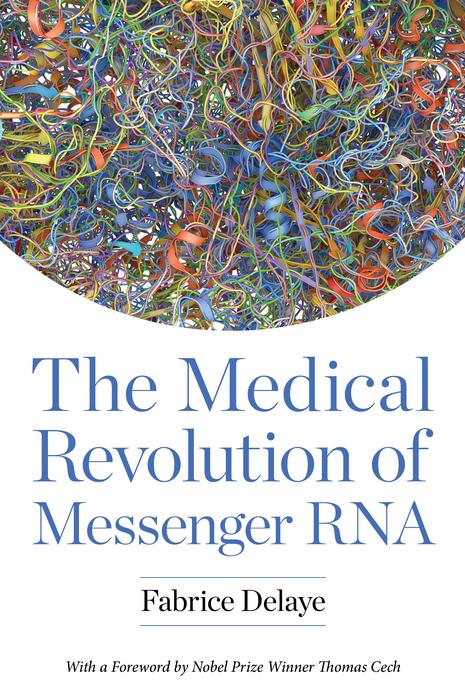Cold Spring Harbor, NY – Cold Spring Harbor Laboratory Press (CSHL Press), a publisher of scientific books, journals, and electronic media, today announced the publication of The Medical Revolution of Messenger RNA by science and technology journalist Fabrice Delaye.

Credit: Endpaper Studio, George Restrepo
iStockphoto: Christoph Burgstedt
Cold Spring Harbor, NY – Cold Spring Harbor Laboratory Press (CSHL Press), a publisher of scientific books, journals, and electronic media, today announced the publication of The Medical Revolution of Messenger RNA by science and technology journalist Fabrice Delaye.
Many people think it took just ten months to develop a vaccine against the virus that causes COVID-19. What most don’t know is that it was made possible by using messenger RNA (mRNA), the molecule that instructs cells to make a viral protein that stimulates the production of antiviral antibodies, and that this breakthrough technology, which Nobel Prize winner Thomas Cech calls biology’s equivalent of putting a man on the moon, had been in development for three frustrating decades—decades preceded by thirty years of fundamental research. In fact, two scientists, Katalin Karikó and Drew Weissman, won the 2023 Nobel Prize in Physiology or Medicine for their pioneering work in messenger RNA.
Karikó and Weissman are among the many prominent scientists interviewed by veteran science journalist Fabrice Delaye for his book The Medical Revolution of Messenger RNA, which tells the story of how mRNA’s medical potential was finally realized, setting the stage for a coming revolution in which our own bodies will generate the therapeutic molecules we need. Though it’s now thought to show promise for the treatment of everything from cancer to cystic fibrosis to cardiovascular disease, mRNA was long overlooked by mainstream molecular biologists. The path to recognition of its therapeutic possibilities was littered with broken careers, lawsuits, and opportunities missed by pharmaceutical companies. For the scientists who persisted through years of academic and commercial disappointment, the COVID-19 vaccine was a huge vindication and an important step toward a new generation of therapies.
When mRNA-based vaccines came to the rescue during the pandemic in seemingly record time, Delaye realized that their development could not have been as simple and quick as people wanted to believe. But when he tracked down the origins of mRNA technologies, he uncovered a dramatic story that had never been told. Building on decades of contacts and his unique grasp of the science and the stakes involved, Delaye interviewed more than fifty mRNA scientists and entrepreneurs worldwide. His book documents the long, harrowing, unlikely but ultimately triumphant road to a discovery with the potential to revolutionize medicine far beyond the pandemic.
For more information visit https://cshlpress.com/link/messengerrna.htm.
Fabrice Delaye is a science and technology journalist based in Switzerland. He was U.S. correspondent at the daily Swiss newspaper L’Agefi, science and technology editor at magazine Bilan, and is now a reporter-at-large for Heidi.news in Geneva. He is a graduate of the Institut d’Études Politiques de Paris and has a master’s degree from the Swiss Institute of Technology in Lausanne, EPFL.
About Cold Spring Harbor Laboratory Press
Cold Spring Harbor Laboratory Press is an internationally renowned not-for-profit publisher of books, journals, and electronic media, located on Long Island, New York. Since 1933, it has furthered the advance and spread of scientific knowledge in all areas of genetics and molecular biology, including cancer biology, plant science, bioinformatics, and neurobiology. It is a division of Cold Spring Harbor Laboratory, an innovator in life science research and the education of scientists, students, and the public. All revenue from sales of CSHL Press publications supports research at Cold Spring Harbor Laboratory.



